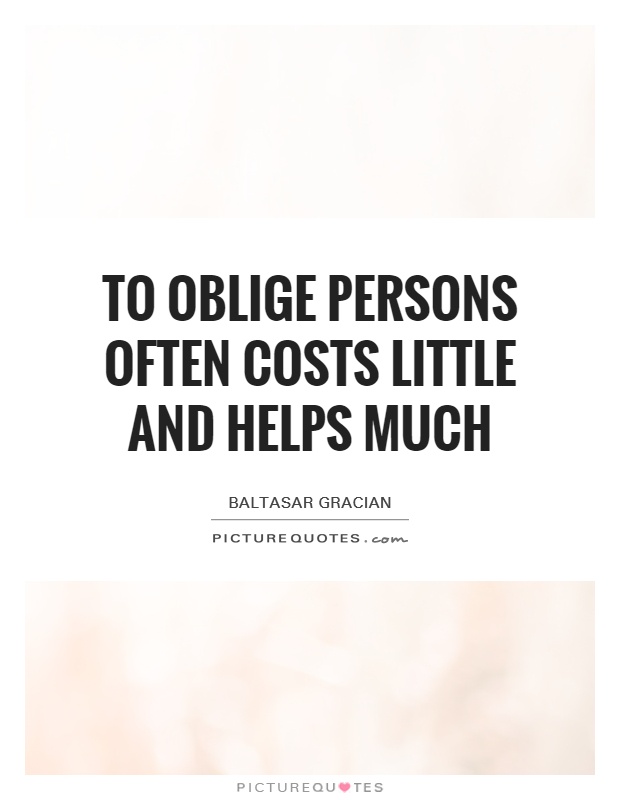To oblige persons often costs little and helps much

To oblige persons often costs little and helps much
In the context of Baltasar Gracian, a Spanish Jesuit and baroque prose writer known for his philosophical works, the idea that "to oblige persons often costs little and helps much" holds significant weight. Gracian's writings often revolve around the themes of human nature, morality, and the art of living a successful and fulfilling life. In this context, the concept of obliging others can be seen as a key component of building strong relationships, fostering goodwill, and ultimately achieving personal growth and success.Gracian believed that human relationships are essential for personal development and success. By obliging others, we not only strengthen our connections with them but also create a network of support and goodwill that can benefit us in the long run. This act of kindness and generosity towards others can go a long way in building trust, respect, and loyalty, which are crucial for achieving our goals and aspirations.
Moreover, Gracian understood the importance of reciprocity in human relationships. By obliging others, we create a sense of indebtedness in them, which can lead to them reciprocating the favor in the future. This mutual exchange of favors and obligations can create a cycle of goodwill and support that can benefit both parties involved.
Furthermore, Gracian believed that the act of obliging others can also have a positive impact on our own character and moral development. By practicing kindness, generosity, and empathy towards others, we cultivate virtues such as compassion, humility, and integrity, which are essential for leading a virtuous and fulfilling life.












 Friendship Quotes
Friendship Quotes Love Quotes
Love Quotes Life Quotes
Life Quotes Funny Quotes
Funny Quotes Motivational Quotes
Motivational Quotes Inspirational Quotes
Inspirational Quotes